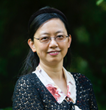IEEE VTS DISTINGUISHED TALK: Self-Evolving and Transformative (SET) Protocol Architecture for 6G
IEEE VTS DISTINGUISHED TALK: Self-Evolving and Transformative (SET) Protocol Architecture for 6G
The fusion of digital and real worlds in all dimensions will be the driving force for future sixth-generation (6G) wireless systems. Ubiquitous in-time and on-time communication services between humans, machines, robots, and their virtual counterparts are essential, and they expand from the ground to air, space, underground, and deep sea. 6G systems are not only data pipelines but also large-scale distributed computing systems with integrated sensing, processing, storage, communication and computing capabilities. It is challenging to build ubiquitous and intelligent 6G systems, handling stringent quality-of-service (QoS) requirements, providing a rich set of communication modes, including unicast, multicast, broadcast, in-cast, and group-cast, and supporting user-centric mobile applications. In this talk, we introduce a new protocol architecture, Self-Evolving and Transformative (SET) architecture that can provide a wide range of control functions, and be intelligently configured for different types of 6G applications and networking environments. Its design principles, potentials, and open issues are discussed. We also introduce a use case applying the architecture to develop a mobility-aware multi-path QUIC protocol for satellite networks.
Date and Time
Location
Hosts
Registration
-
 Add Event to Calendar
Add Event to Calendar
- The University of Hong Kong
- Pokfulam Road
- Hong Kong, Hong Kong
- China
- Building: Chow Yei Ching Building
- Room Number: Room 603
- Contact Event Host
-
Dr. Xianhao Chen, Tel: +852-39177094, E-mail: xchen@eee.hku.hk
Department of Electrical and Electronic Engineering, The University of Hong Kong, Hong Kong
- Co-sponsored by Xianhao Chen
Speakers
 Lin Cai of University of Victoria
Lin Cai of University of Victoria
Self-Evolving and Transformative (SET) Protocol Architecture for 6G
The fusion of digital and real worlds in all dimensions will be the driving force for future sixth-generation (6G) wireless systems. Ubiquitous in-time and on-time communication services between humans, machines, robots, and their virtual counterparts are essential, and they expand from the ground to air, space, underground, and deep sea. 6G systems are not only data pipelines but also large-scale distributed computing systems with integrated sensing, processing, storage, communication and computing capabilities. It is challenging to build ubiquitous and intelligent 6G systems, handling stringent quality-of-service (QoS) requirements, providing a rich set of communication modes, including unicast, multicast, broadcast, in-cast, and group-cast, and supporting user-centric mobile applications. In this talk, we introduce a new protocol architecture, Self-Evolving and Transformative (SET) architecture that can provide a wide range of control functions, and be intelligently configured for different types of 6G applications and networking environments. Its design principles, potentials, and open issues are discussed. We also introduce a use case applying the architecture to develop a mobility-aware multi-path QUIC protocol for satellite networks.
Biography:
Lin Cai is a Professor with the Department of ECE at the University of Victoria. She is an NSERC E.W.R. Steacie Memorial Fellow, an Engineering Institute of Canada (EIC) Fellow, and an IEEE Fellow. In 2020, she was elected as a Member of the Royal Society of Canada's College of New Scholars, Artists and Scientists, and a 2020 "Star in Computer Networking and Communications" by N2Women. Her research interests span several areas in communications and networking, focusing on network protocol and architecture design supporting emerging multimedia traffic and the Internet of Things. She was a recipient of the NSERC Discovery Accelerator Supplement (DAS) Grants in 2010 and 2015, respectively. She has co-founded and chaired the IEEE Victoria Section Vehicular Technology and Communications Joint Societies Chapter. She is an elected member of the IEEE Vehicular Technology Society (VTS) Board of Governors, 2019 – 2024. She is the Associate Editor-in-Chief for IEEE Transactions on Vehicular Technology and has served as a Distinguished Lecturer of both the IEEE VTS Society and the IEEE ComSoc Society.

